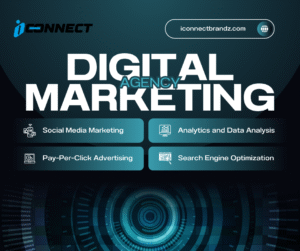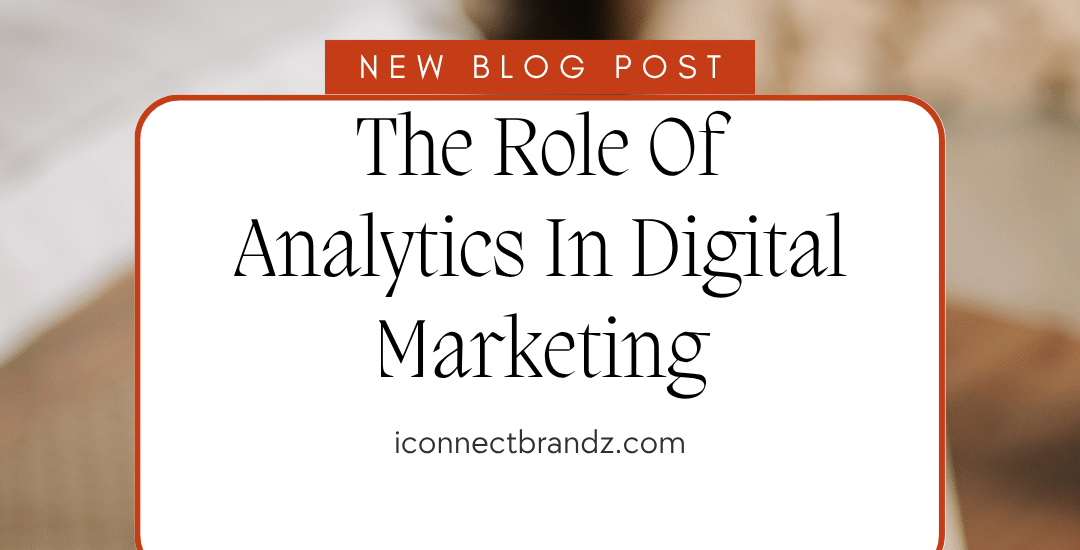When I started learning about digital marketing, I thought it was only about ads and social media posts. But then I learned about analytics, and that changed everything for me. If you want to grow your business online or learn digital marketing, you need to know about analytics. Don’t worry — I’ll explain it in a very simple way, like we’re having a friendly chat over chai.
What Is Analytics in Digital Marketing?
Analytics means looking at the numbers and data from your online work. This data comes from your website, social media, ads, and emails. It shows you what is working well and what is not.
Here are some things analytics can tell you:
- How many people visited your website
- Which page they liked the most
- If someone clicked on your ad
- How many signed up from your email
Basically, all this information is called “data,” and checking it is called “analytics.”
Why Is Analytics Important in Digital Marketing?
When I started helping clients with digital marketing services in the USA and Pakistan, I saw that businesses wanted real results. They didn’t just want likes or followers. Instead, they wanted sales, calls, and leads. That’s why analytics is so helpful.
With analytics, you can:
- Learn who is visiting your site (like their age, location, and device)
- Find out which post or ad is doing well
- See what keywords bring people to your site
- Understand what actions people are taking
In this way, you stop wasting time and money. As a result, you focus only on what’s really working. Moreover, you get clear ideas on what to improve next.
Easy Tools to Start With
You don’t need to be an expert to use analytics. In fact, many free and easy tools are available. Here are a few I use for clients in the USA:
Google Analytics
First, this tool shows how people find and use your website.
Google Search Console
Secondly, it tells you how your website is doing in Google searches.
Facebook Insights and Meta Business Suite
Also, these tools show which Facebook and Instagram posts are doing well.
Ubersuggest or Ahrefs
Finally, these tools help you see what keywords people search and what your competitors are doing.
How I Use Analytics Every Day
Here’s how I use analytics every day as a digital marketing consultant in the USA:
Step 1: Check Website Visitors
First, I open Google Analytics to see how many visitors came, what pages they liked, and where they came from.
Step 2: Check Social Media Posts
Then, I use Meta Business Suite to see which Facebook and Instagram posts are doing the best.
Step 3: Check SEO Results
Next, I go to Google Search Console to check which keywords are working.
Step 4: Make Changes
If something is not working, I change it. For example, if an ad gets clicks but no sales, I stop it. On the other hand, if a blog brings more visitors, I write more like that.
Analytics Helps You Know Your Audience Better
Analytics teaches you more about your audience. You can find out:
- What device they use (like mobile or laptop)
- What time they are online
- What kind of content they enjoy
- Which products or services they look at the most

As a result, whether you’re a big marketing agency in New York or a freelancer in Karachi, this helps you improve your work. In addition, you can create better content and ads.
A Real Example: How Analytics Helped One Business
One of my clients runs an online clothing store in the USA. Before using analytics, they were guessing. Then we added Google Analytics and Facebook Pixel. We found that most buyers were women aged 25–34 using mobile phones.
So we:
- Made mobile-friendly ads
- Posted in the evening
- Targeted the right age group
As a result, sales doubled in just 2 months. Furthermore, the store kept growing steadily because we kept checking the data and making small changes.
Numbers You Should Always Check
You don’t need to look at everything. However, just focus on these important numbers:
1. Website Traffic
How many people visited your website?
2. Bounce Rate
How many people left after seeing only one page?
3. Click-Through Rate (CTR)
How many people clicked on your ad or post?
4. Conversion Rate
How many people bought something or signed up?
5. Cost Per Click (CPC)
How much do you pay for each click?
6. Return on Investment (ROI)
Are you making more money than you’re spending?
Moreover, by checking these numbers regularly, you will understand what is working and what is not.
Final Thoughts: Start Small and Learn
If you want to do well in digital marketing, you can’t ignore analytics. Whether you’re a full-service digital marketing firm in the USA or just starting in Pakistan, these tools can help you grow.
Start with the basics. Use Google Analytics, Facebook Insights, and Search Console. Then watch the numbers. Try different things. After that, keep improving.
Once you know what your audience likes and how they behave, your marketing becomes smarter and more successful. In conclusion, using analytics helps you work less but achieve more.
FAQs
What is analytics in digital marketing?
Analytics in digital marketing means collecting and studying data from your online platforms like websites, ads, and social media. This helps you understand what is working and what needs improvement.
Why is analytics important for small businesses?
For small businesses, analytics shows where traffic comes from and what brings results. It helps save money and focus on the best strategies.
Which tools are best for beginners?
Google Analytics, Google Search Console, and Facebook Insights are great tools for beginners. They are free and easy to understand.
How often should I check my analytics?
It’s good to check weekly or at least monthly. This keeps you updated and helps you make smart decisions.
Can analytics help increase my sales?
Yes. By understanding customer behavior and improving your content or ads based on real data, you can boost your sales effectively.




